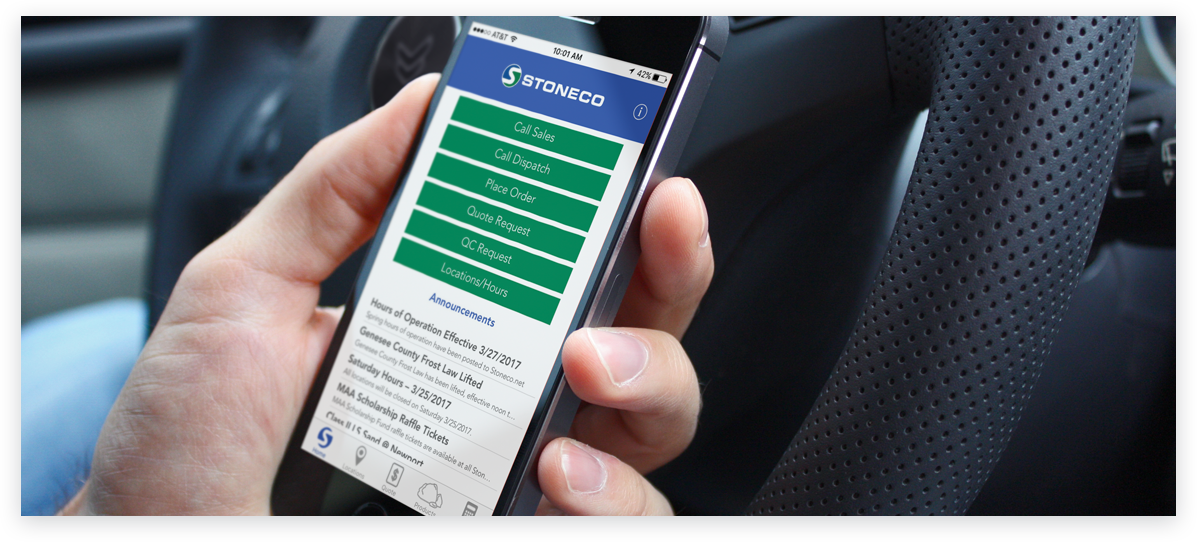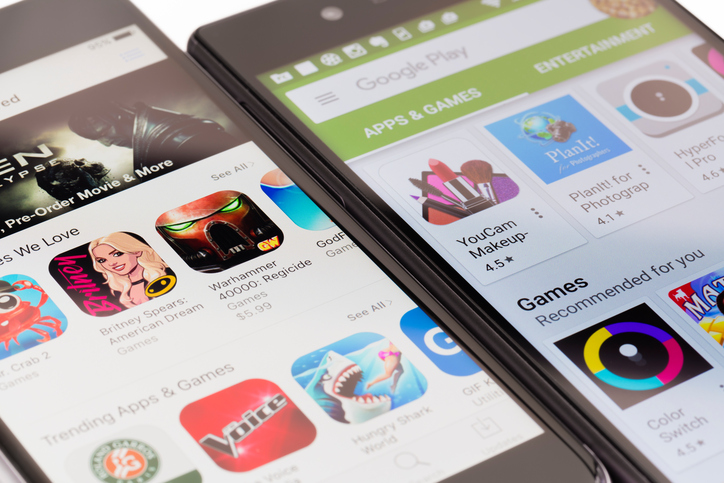One of the things we’ve learned over the past nine years we’ve been doing mobile applications is that there are an almost infinite number of ways mobile can improve a business.
When Stoneco of Michigan came to us, we weren’t sure how a large hauler of aggregate would use mobile. Stoneco realized they needed a more efficient way to communicate available inventory to its on-site and on-the-road customers. They were also unable to effectively communicate extended hours and other schedule changes to their broad customer base. In addition to this, Stoneco was looking to streamline quote, quality control, and order requests.
The app we built them is designed to help facilitate instant communication with Stoneco’s customers. Using the app, customers can:
- Receive real time updates on product availability
- Request a quote
- Place an order
- Set up delivery for an existing order
- Contact sales
- Contact dispatch
- Contact quality control
- View hours of operation at each site
- View available products by location
Stoneco’s initial launch has seen all their top customers downloading and utilizing the application. Their current download count of 200 users may seem small. But because it’s the right 200 users, the app has delivered huge benefits for Stoneco’s business. And now that customers are in the habit the utilization is only expected to climb as their customers head into the 2018 construction season.
“Stoneco needed a smartphone app that could deliver real time updates to a wide range of customers and provide a streamlined way to receive requests from those customers. jācapps provided the complete solution to our needs and continues to exceed all our expectations in a professional, timely manner.” – Paul Cuthbert, Sales Manager, Stoneco of MI
It’s important for businesses to think innovatively about how mobile can help them. Unique uses of mobile we’ve executed include reaching consumers directly, or connecting business to business customers, or even apps that facilitate communications among a business’ staff. Whatever the need, we can help you figure out the right application.
To learn more about how mobile apps can benefit your business, reach out to us at 248-353-9030 or marketing@jacapps.com we love talking mobile!



